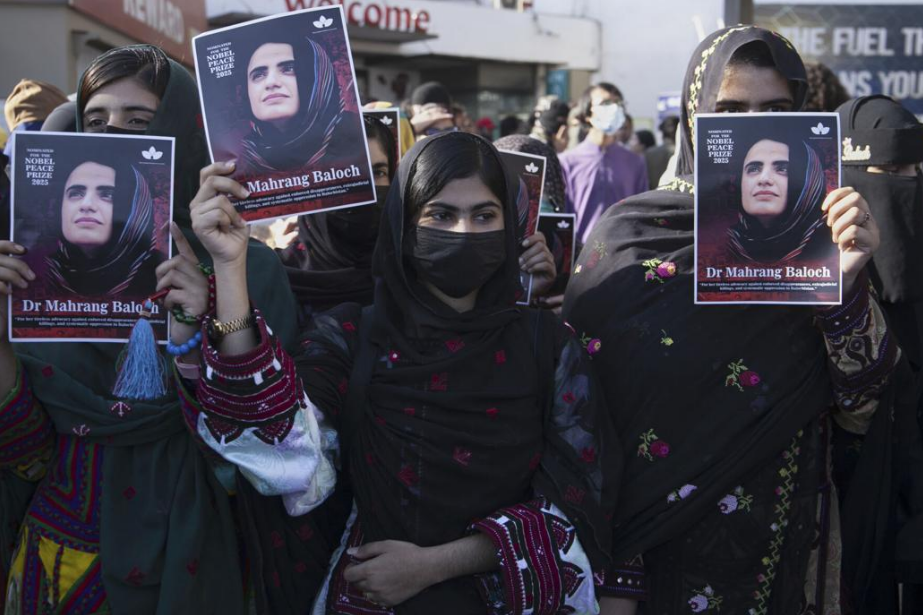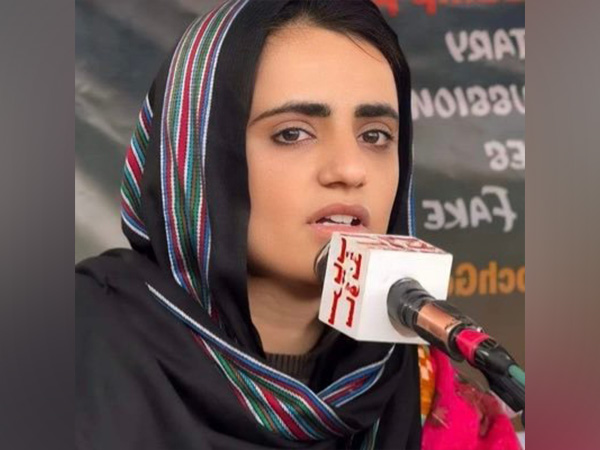

Dr. Mahrang Baloch, the charismatic and fearless leader of the peaceful Baloch civil resistance, has been detained by Pakistani authorities alongside 16 other activists for protesting against the ongoing enforced disappearances in the province. As a key organiser of the Baloch Yakjehti Committee, an organisation that has played a significant role in galvanising grassroots mobilisations demanding state accountability, Baloch faces charges including directing terrorist activities, sedition, and rioting. Despite triggering widespread domestic and international condemnation, the Pakistani authorities remain largely unperturbed in their authoritarian suppression of peaceful Baloch demonstrations. In light of the recent escalation in insurgent attacks within the province, the latest wave of arrests and violent repression of protests can be seen as a deliberate attempt to divert attention from the state’s own failures and shortcomings.
Although the Pakistani state has escalated its efforts to silence Baloch this time, she has been under scrutiny for some time. A surgeon by profession, she has played a pivotal role in fostering the peaceful Baloch movement within a highly perilous environment. At just 32 years old, she has witnessed firsthand the severe abuses that the Pakistani state inflicts upon the Baloch people. In 2009, at the age of 16, her father, Abdul Ghaffar Lango, a labourer and political activist with the Balochistan National Party (BNP), was forcibly disappeared. Two years later, his mutilated body was discovered, showing signs of torture and gunshot wounds. In 2017, Baloch’s brother was also forcibly disappeared. Although he was released three months later following Baloch’s vocal opposition to the authorities, her anger and activism endured, and she has since become the voice of many others who continue to suffer similar fates.
Mahrang Baloch gained widespread recognition during the Baloch Yakjehti Committee’s (BYC) ‘March against Baloch Genocide’ from Turbat to Quetta (the provincial capital) and ultimately to Islamabad, held between December 2023 and January 2024. The catalyst for this long march was the November 2023 killing of 24-year-old tailor Balach Mola Baksh by the Counter Terrorism Department, which falsely characterised the incident as an encounter. His family, claiming he was in state custody at the time of his death, protested at Fida Ahmed Chowk in Turbat with his body for a week, but their efforts yielded no results.

The BYC had originally emerged from the Bramsh Yakjehti Committee, formed in solidarity with and to seek justice for Bramsh, the 4-year-old daughter of Malik Naz, who was allegedly killed by state-backed death squads in May 2020. In response to the ongoing state abuses, including enforced disappearances, fabricated encounters, extrajudicial killings, and torture, the leadership of the Bramsh Yakjehti Committee chose to broaden its scope to address the broader plight of the Baloch people, renaming the organisation as the Baloch Yakjehti Committee. The movement is spearheaded by the mothers, sisters, daughters, and half-widows of those who have fallen victim to these brutal state actions, without any accountability. The BYC has since organised a number of significant demonstrations, mobilising people on an unprecedented scale in the history of the province, including the ‘Baloch Raaji Muchi’ in Gwadar in July 2024 and the ‘Baloch Genocide Remembrance Day’ in Dalbandin in January 2025.
In response to the rise of peaceful civil resistance by the Baloch people, the Pakistani establishment, rather than addressing the long-standing grievances of the populace, has resorted to its usual tactics of obstructing, discrediting, and silencing the movement. The protests have continued despite state-enforced internet and network blackouts, arbitrary detentions, the use of water cannons, tear gas, and even live ammunition. Additionally, the state has launched an extensive disinformation campaign against the movement. The mainstream media, traditionally aligned with state narratives, has been complicit in linking the activists to insurgents, alleging that they are supported or manipulated by foreign entities. Dr Mahrang Baloch herself has been targeted by malicious digital propaganda, with false claims that her father and brother were associated with insurgents. Furthermore, an image of her with a Norwegian journalist who interviewed her was circulated, suggesting foreign involvement in the movement. A fabricated audio recording was also spread, falsely claiming that Baloch was attempting to secure foreign funds for the Gwadar protest. A recurring element of the disinformation campaign involves misrepresenting the missing persons, whom the movement advocates for, as separatist militants. In one instance, a photograph of Baloch at a protest was altered to distort an image of a missing person on a poster behind her, replacing the image of Rafique Oman with that of Rafiq Bizenjo, a suicide bomber allegedly claimed by the Balochistan Liberation Army (BLA).
The province of Balochistan has endured immense deprivation and suffering due to the ongoing conflict between the Pakistani state and the long-standing armed insurgency. In addition to the systemic discrimination and exploitation imposed by the federal government, the Baloch people have faced relentless human rights violations by the state under the guise of counter-insurgency measures. The recent train hijacking and Noshki attack on security personnel by the Balochistan Liberation Army (BLA) highlight the complete failure of Pakistan’s policies to address the insurgency and safeguard the Baloch population. Rather than confronting the fundamental issues surrounding its approach, the establishment has reverted to its familiar and convenient tactic of suppressing peaceful dissent to avoid addressing difficult questions.
Dr Mahrang Baloch is currently being held in Quetta District Jail without any legal proceedings, denied access to her lawyer and family. Her cousin, Asma Baloch, has reported that the authorities are even preventing her family from delivering food and other necessary items to her. International human rights organisations, including Amnesty International and Front Line Defenders, have raised concerns about this situation and called for her immediate release. It is evident that the state’s attempt to silence a prominent figure of the peaceful Baloch resistance has backfired, drawing greater attention to the plight of the Baloch people. It is crucial that the establishment reassesses its approach and puts an end to the egregious practices that have fuelled the insurgency and caused immense suffering to the Baloch population.